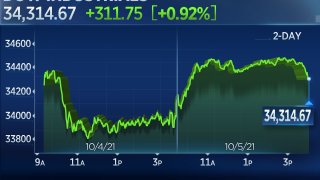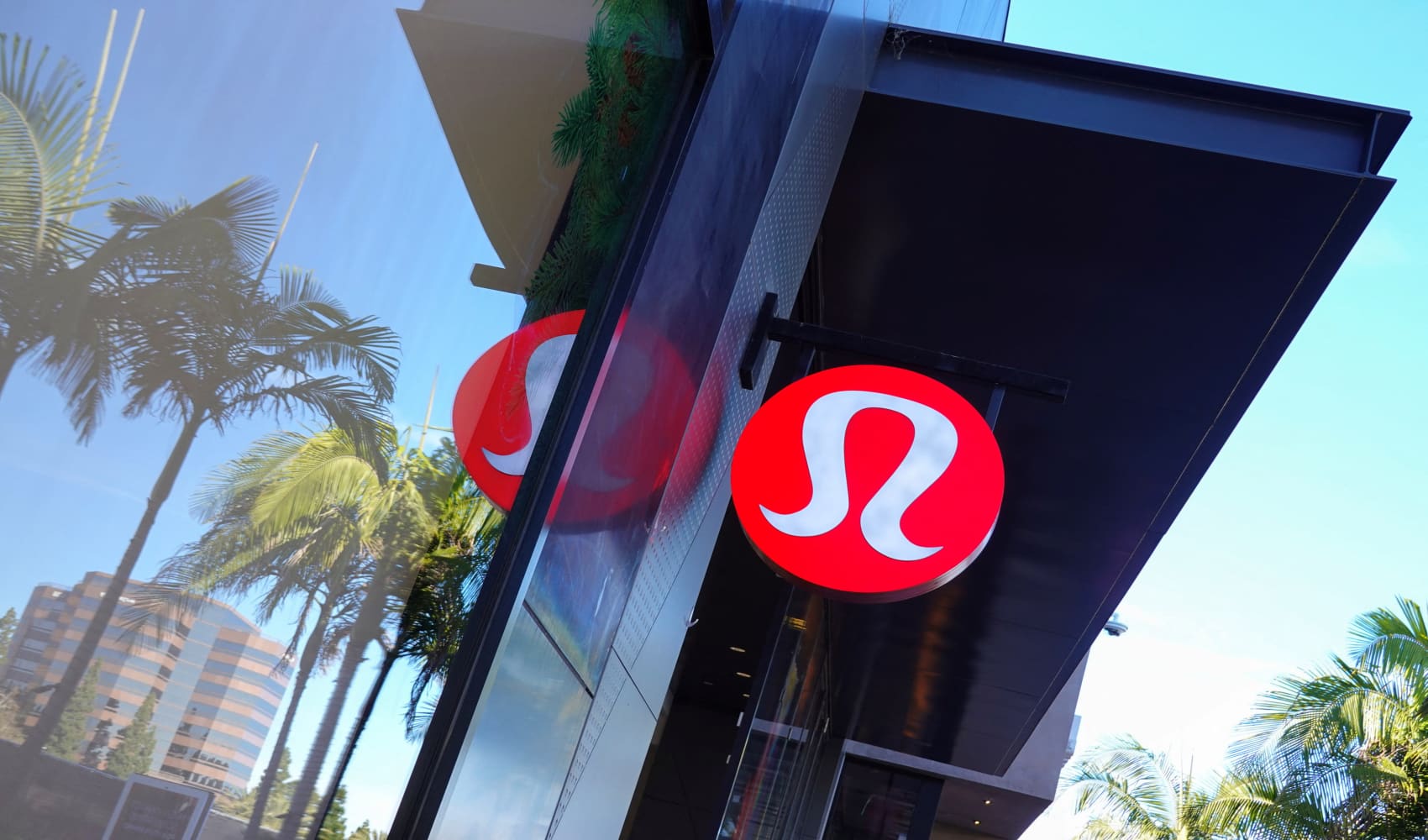
The major averages rebounded on Tuesday following a technology-centered market rout in the previous session.
The Dow Jones Industrial Average gained 311.75 points, or 0.92%, to 34,314.67. The S&P 500 rose 1.05% to 4,345.72 and the Nasdaq Composite rallied 1.25% to 14,433.83. All three of the major averages are still down for the week after closing off their highs.
Mega-cap technology names were solidly in the green on Tuesday. Netflix rose 5.2%, Amazon gained just shy of 1%. Apple and Alphabet advanced 1.4% and nearly 1.8%, respectively. Facebook shares rose 2% following a 5% slide on Monday due to a whistleblower's claims and a site outage.
Get Boston local news, weather forecasts, lifestyle and entertainment stories to your inbox. Sign up for NBC Boston’s newsletters.
Energy stocks rose again as oil prices continued their climb. U.S. oil prices topped $79 per barrel on Tuesday before settling at $78.93. Chevron advanced 1% and Enphase Energy rose 1.6%.
Stocks tied to the economic recovery, like cruise lines, airlines, retailers and banks, also rose alongside the broader market. Norwegian Cruise Line popped over 1%, and Goldman Sachs rose 3.1%. Wells Fargo added 2%.
While the market has been divided as of late between stocks leveraged to the economic comeback and Big Tech, both cohorts enjoyed gains on Tuesday. All but four Dow members were in the green.
Money Report
Helping sentiment around the recovery, the Institute for Supply Management services PMI report for September rose to 61.9 from 61.7 in August, 2 points better than expected.
"The slight uptick in the rate of expansion in the month of September continued the current period of strong growth for the services sector. However, ongoing challenges with labor resources, logistics, and materials are affecting the continuity of supply," ISM said in the release.
On Monday, the Nasdaq Composite dropped 2.1% for its sixth negative day in seven as the tech heavyweights declined. The blue-chip Dow shed more than 300 points, while the S&P 500 lost 1.3%, dragged down by technology shares.
Tech has been the worst performing sector of the last month as a jump in yields caused investors to rotate out of the highly valued shares since rising rates can make their future profits look less attractive. Yields are increasing as the Federal Reserve signaled in September it would start tapering its monthly bond-buying soon. The U.S. 10-year Treasury yield was around 1.53% on Tuesday afternoon after hitting a high of 1.56% last week.
"The sell-off was in part driven by a rise in 10-year government bond yields... higher inflation, and weaker growth," wrote Mark Haefele, chief investment officer of global wealth management at UBS. "Energy shortages and a fiscal impasse in the U.S. Congress also undermined sentiment. But we see such worries as overstated, or likely to fade soon, and we expect the equity rally to get back on track."
The market suffered a tumultuous September as inflation fears, slowing growth and rising rates kept investors on edge. The S&P 500 fell 4.8% last month, posting its worst month since March 2020 and breaking a seven-month winning streak.
In Washington, lawmakers are still trying to agree to raise or suspend the U.S. borrowing limit and avert a dangerous first-ever default on the national debt. The Treasury Department warned last week that lawmakers must address the debt ceiling before Oct. 18 when officials estimate the U.S. will exhaust emergency efforts to honor its bond payments.
Treasury Secretary Janet Yellen said Tuesday she believes the economy would fall into a recession if Congress fails to raise the debt ceiling before a default on the U.S. debt.
"It would be catastrophic to not pay the government's bills, for us to be in a position where we lacked the resources to pay the government's bills," Yellen said during an interview on CNBC's "Squawk Box."
Still, some believe the outlook for equities remain robust after the weak September as the economy continues to rebound from the Covid crisis.
"We do not believe the recent bout of de-risking will lead to sustained falls, and maintain the stance to keep buying into any weakness," Marko Kolanovic, JPMorgan's chief global markets strategist, said in a note Monday.
Investors are readying for the closely watched jobs report, which will be released on Friday.






